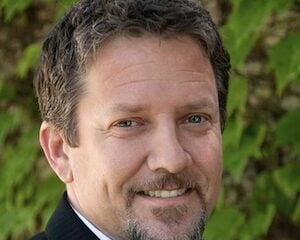Knocking God’s party: Moyers, PBS hear from angry conservatives
Bill Moyers came out swinging three days after the Nov. 5 midterm elections,
and the target of his jabs—America’s right wing—came swinging back. Conservatives said he made a hysterical partisan attack on Republicans in his commentary on PBS’s Now with Bill Moyers Nov. 8.
Lamenting the GOP sweep of both houses of Congress, Moyers slammed the
majority party’s agenda, which he believes will “force pregnant women
to give up control over their own lives,” use “taxing power
to transfer wealth from working people to the rich” and give “corporations
a free hand to eviscerate the environment.”
The Now host also railed against the close ties between Republican
leaders and the religious right. “If you like God in government,”
he told viewers, “get ready for the Rapture. These folks don’t even
mind you referring to the GOP as the party of God.”
Members of the CPB Board spoke out against bias in public broadcasting
at the board’s next meeting, though they didn’t connect their remarks
to Moyers’. The board unanimously voted to reaffirm pubcasting’s commitment
to objectivity in program content.
“It is especially important in these extraordinary times for public
broadcasting to provide information to the public about issues of national
import in a manner that represents multiple points of view,” the
resolution states. “The Public Broadcasting Act recognizes the need
to treat subjects of a controversial nature in a fair and balanced way.”
Moyers’ comments provoked hostile replies from conservative Republicans
and their allies, including Fox News’ Bill O’Reilly, the Wall Street
Journal and the Traditional Values Coalition, still smarting over
its dust-up with NPR last year.
Moyers watchers are used to such slugfests. Since PBS launched Now
to bolster its public affairs offerings after the September 2001 attacks,
conservatives have objected to the show as nothing more than a platform
for Moyers’ liberal views. They say Moyers slants the show to fit the
ideology of the Johnson administration, in which he worked decades ago.
“Every time I hear one of Parson Moyers’ sermons, it reminds me
that he came to public attention as head flack for Lyndon B. Johnson,”
wrote Robert Bartley, longtime head of the editorial page of the Wall
Street Journal, who has sparred with Moyers on the show.
“Moyers’ anti-Christian bigotry is nothing new,” wrote Rev.
Louis P. Sheldon, chairman of the Traditional Values Coalition. He “has
a skewed view of Christianity but this shouldn’t surprise us. He has drunk
deeply from the well of spiritual syncretism through the writings of the
late occultist Joseph Campbell.”
“Moyers has been on the stump making charges and using hyperventilated
language for years,” said Jim Weidman, a spokesman for the conservative
Heritage Foundation. “But typically he’s doing that in the privacy
of a lecture hall rather than on PBS.”
Weekly Standard columnist Stephen F. Hayes said it wasn’t worth
the effort to chide Moyers, arguing that the PBS journalist is irrelevant.
“The tragedy of Bill Moyers is that very few people watch him these
days,” he wrote.
Now’s audience is about the size of the network’s other public
affairs programs—about half the size of its primetime average.
Moyers asserts he’s beholden to no one and criticizes both Democrats
and Repub-licans for sucking up to campaign donors at the expense of the
environment, the poor and democracy in general.
John Siceloff, executive producer of Now, says its driving force
is not liberal bias but the belief that important stories are being ignored
in other media outlets.
Viewers are inundated with information about the moment, but there’s
no analysis or consideration of what it means, he said. Now makes
judgments about what’s wrong with America and tells people why they ought
to care, Siceloff added. “We don’t shy away from stories that will
create controversy.”
Nor does Moyers shy away from sharing his opinions about those stories.
His fiery post-election remarks—labeled as commentary during the final
moments of the Nov. 8 broadcast—stung opponents.
The piece generated both favorable and unfavorable postings on Now’s
website, conservative web forums and PBS Express, public TV’s internal
e-mail system. Programmers worried that Moyers’ comments will give ammunition
to critics of public TV who assume a liberal bias in everything it does.
Many of those same programmers are also concerned with Moyers’ topic
and guest selection, said Tom Holter, executive director of programming
for Twin Cities PTV. They fear it reveals a liberal bias and excludes
alternative viewpoints, which could threaten state and federal aid to
public TV.
Holter said some programmers disapprove of Moyers concluding the show
with his opinion pieces, which may lead viewers to mistrust the reporting
presented earlier in the program.
Siceloff maintains that conservatives frequently appear on Now
and that Moyers seeks to tease the truth out of difficult subjects rather
than serve up lefty spin. Viewers are smart enough to separate the factual
reporting and the labeled commentaries, the producer said.
No personal agendas, please
The flap over the Nov. 8 commentary came while CPB was wrapping up a
yearlong effort to re-examine its commitment to objectivity and balance,
said CPB President Bob Coonrod.
CPB has studied objectivity issues in pubcasting overseas and plans to
solicit viewer feedback about program content. The corporation has also
commissioned a project to revisit ethical guidelines for public radio
news producers.
These efforts culminated in the editorial integrity resolution passed
Nov. 19, Coonrod said.
High standards for objectivity and balance “cannot always be reconciled
within the context of a single program or program segment,” Coonrod
said at the board meeting. “Instead we strive for overall fairness,
while leaving room for the eccentric, the provocative, and even the oddball.”
Public affairs producers have a duty to be impartial, said CPB Board
Chairwoman Katherine Anderson. Like Coonrod, she believes it’s difficult
to prescribe an exact formula for balancing reports.
But Anderson sees a good model for fair reporting on PBS: “I think
many years ago, the MacNeil/Lehrer NewsHour set the bar for integrity
and balance,” she said in response to questions from Current.
“It would be my goal for the entire public broadcasting system to
become known for the kind of standard of balance that that program has
achieved.”
Coonrod believes it’s an art—not a science—to make judgments about balance
and objectivity.
“I don’t think of it in quantitative terms,” Coonrod said.
Producers aim to “highlight important issues but try not to tell
people what to think about them.”
“In order to be credible, we have to be fair and balanced, but we
also recognize that nobody’s perfect,” Coonrod said.
Part of CPB’s role is to solicit feedback—both good and bad—on the programs
it funds and to share that with the system and Congress, Coonrod added.
Members of Congress and their staffs are more than willing to let CPB
know what they think of public broadcasting’s programming, Coonrod said.
The system welcomes legitimate criticism.
But CPB also serves to protect stations from undue interference, Coonrod
said. It’s one of the reasons the annual CPB appropriation is advance-funded
by two years—so reactions to today’s editorial decisions don’t threaten
tomorrow’s funding.
In time, however, the system must be responsive to Congress, Anderson
maintains. Time spent dealing with perceptions of unfairness and bias
means time not spent on other initiatives, Anderson said.
At a House oversight hearing in July, pubcasting execs spent most of
their time deflecting charges of bias in public broadcasting when they
had planned to use the rare hearing to argue for more DTV conversion aid.
“I happen to think all producers should operate in a political vacuum,”
Anderson said. “What we don’t want is producers who arrive with a
political agenda.”
Moyers’ mission: be tough
CPB chose not to back Now when PBS asked for support more than
a year ago. Coonrod said CPB wanted to devote its scarce resources to
other post-Sept. 11 programming, including extended episodes of the NewsHour
and Washington Week as well as a series of one-on-one interviews
hosted by Moyers.
PBS charged ahead without CPB aid, recruiting Moyers for the first year
of Now and designating the show for common carriage on Friday nights.
Today, the show is funded by PBS, Mutual of America Life Insurance Co.
and foundations. The network also brought in NPR News, which regularly
contributes reports to the TV program. The New York Times frequently
contributes reports based on big investigative stories.
PBS President Pat Mitchell encouraged the show’s producers to “be
tough,” Siceloff said. Now was designed to offer a fresh alternative
to PBS’s public affairs menu.
That said, the show’s producers aren’t looking in the rearview mirror
to monitor what else is on the PBS schedule so they can balance their
own reporting, Siceloff said. Ultimately, the responsibility to achieve
an impartial schedule rests at Braddock Place, he said.
The network appears to be satisfied. This summer, network execs renewed
Now for another year, and Moyers agreed to continue headlining
the show. He said initially he would leave after one year.
PBS programming chiefs John Wilson and Coby Atlas defended the show after
Moyers’ Nov. 8 commentary. “Commentary by definition is meant to
be provocative,” they wrote to station executives. “It’s designed
to challenge and provoke discussion. Bill’s commentary certainly did that.”
The dialogue of negative and positive reactions from viewers “is
exactly what should happen in public broadcasting,” they said.
The Moyers program is just one element of the more than six hours of
public affairs programming public TV airs each week, they said. Many stations
also carry the McLaughlin Group, which is a half hour “almost exclusively
devoted to McLaughlin’s view of the world,” they wrote.
In an interview with Current, Atlas said there’s controversy “whenever
somebody takes a stand” and letting people say what’s on their mind
is “what democracy is all about.”
Siceloff said Moyers’ occasional commentaries add, not detract, from
the show. “We feel the show is strengthened by Moyers’ version of
what the events are, and we clearly label it as commentary. As a public
citizen, he has the right to speak out,” he said.
He said most political journalism focuses on the Democratic-Republican
horse race without noting the underlying policy differences. Now attempts
to go beyond partisan labels and criticize both parties.
Siceloff said the program gets slammed from both conservatives and liberals,
each arguing the show is slanted toward the other side.
“We have a core mission to take on the urgent issues of the day,”
he argued. “There will be times when our take on democracy will make
somebody hopping mad.”
Some of those offended come within public TV’s own ranks. Moyers makes
PBS his own “private soapbox,” said Allen Harmon, president
of WDSE in Duluth, Minn. It would be preferable for “PBS to produce
a public affairs program that didn’t have such obvious bias,” he
said. “We can do good journalism without the opinion.”
Harmon said he’s uncomfortable with Moyers’ commentaries because they
taint the journalism presented elsewhere in the program. The station exec
thinks Now is excellent but worries about the credibility of the network
when its most prominent journalist states his views so emphatically.
The Idaho network has received no complaints about the show, said Ron
Pisaneschi, Idaho PTV’s director of broadcasting. Though Now isn’t
always balanced by itself, there are plenty of conservatives on public
TV, he added.
Shows such as Washington Week and The McLaughlin Group
regularly feature reporters sharing their opinions about the stories they
cover, he said.
Questions about bias are almost always in the eye of the beholder, according
to PBS. A 2002-2003 survey of opinion leaders by Erdos and Morgan, a major
market research firm, found that America’s most influential people held
that the NewsHour, Frontline, Now and Washington Week were
the four most credible public affairs shows on TV.





